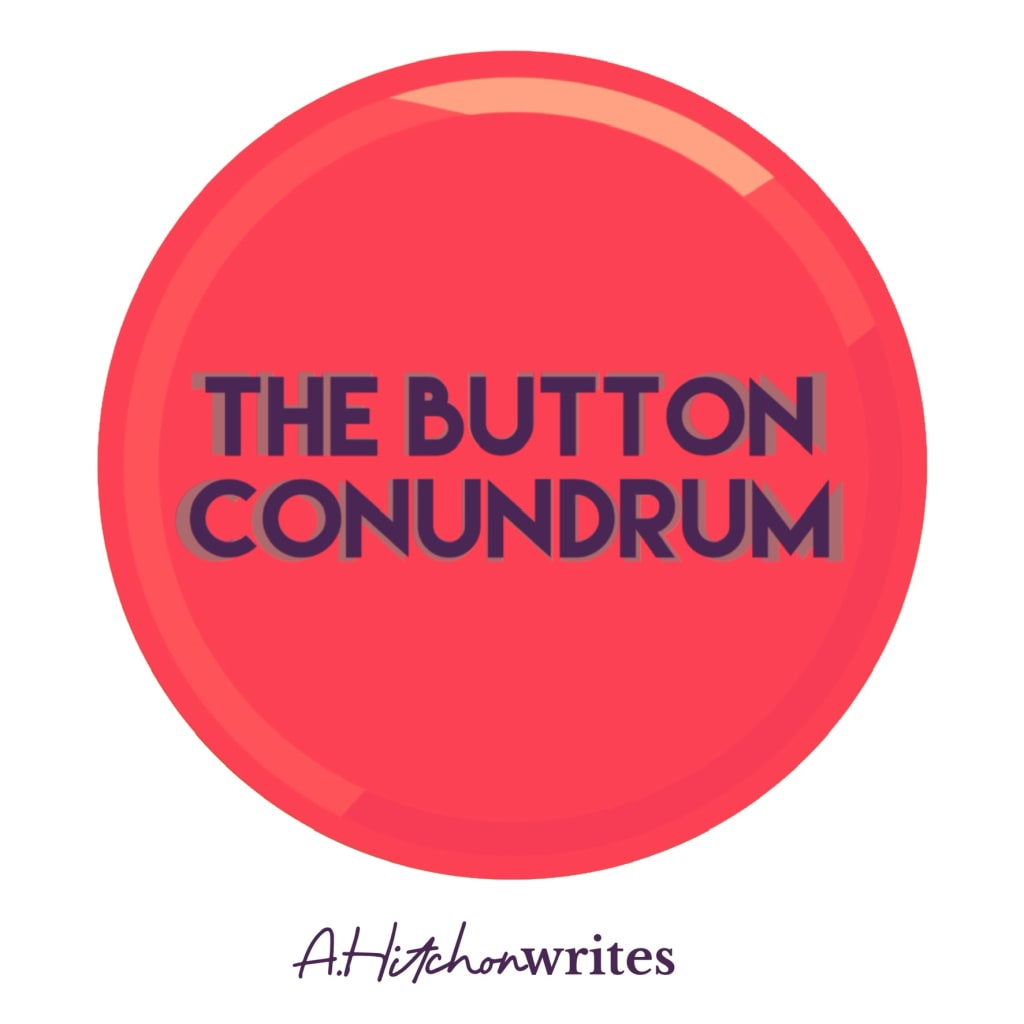
Overnight, every household received the same mysterious package. No one was sure how, exactly, they were delivered, but the fact remained that there they were. They were all seemingly the same. The package was wrapped in plain brown paper and inside there was some sort of remote control with one large button. There was also a note written in block letters on the inside of the packaging that said: IN ONE WEEK LIVE OR DIE. It was all very suspicious.
The first day of the button, things proceeded as normal. We went to work. We updated our social media. We ate lunch. By the afternoon, social media was whipped into a frenzy. News reports spewed out guesses as to where the packages came from. Police officers were inundated with reports. A rather curious electronics repair shop confirmed that the button was currently inert. By that evening, the real questions started to come out: if you push the button, does that mean you will live or does it mean you will die?
The second day, most people still went to work. Updated their social media. Ate lunch. But several had decided to stay home and ponder the question of the button. Everyone who was anyone had an opinion on the matter. Celebrities endorsed their opinions online, and followers followed. People naturally started to claim that they were responsible for the buttons, but each case was dismissed. Popularity mongers threw together blogs and posts claiming that only they knew the secret behind the button. News exclusives featured analysts of any sort debating the issue: psychologists pitted against electronic engineers. Ultimately, no one knew what it meant. Push and die or push and live?
The third day, few went to work. Everyone updated their social media. Most people forgot to eat lunch. Live news coverage polled anyone they could: Push or Don’t Push. It was like election day, but worse. Online influencers used their platform to sway the vote one way or the other. Celebrities loudly voiced their opinions, hoping others would follow. Conspiracy theories ran wild: “Don’t be a sheep!” “The button is a lie.” “The government is controlling you.” “Alien invasion immanent.” That sort of thing. At this point, religious leaders were pressed into making some sort of decision. Their congregations wanted to know what they should do. They speculated that their respective god(s) did not want the button to be pushed. It was fairly unanimous on that front.
The fourth day, almost no one went to work. An appeal for paid days off was made and an employer popularity contest emerged. The best employers offered each employee paid sick days until the day after the button needed to be pushed or not pushed. Mediocre employers allowed their employees to stay home, but only the upper management members got paid. Unpopular employers asked that their employees return to work or they would be terminated. The larger corporations were the worst: they made vague announcements saying that they were considering the matter seriously and would make an announcement at some later time to announce their decision. No one liked that. Online polls tracked who worked for which type of company. News reports called out the employers who were avoiding the issue of making a proper decision. Social media blasted the companies that did not offer paid days off. Rumours spread that certain retail companies faced complete collapse since they fired all their staff for not showing up to work.
The fifth day, everyone stayed home. No one updated their social media. Lunch was replaced with endless snacking. Cultists finally caught up with the rest of the world and began planning mass suicides or orgies or both. Evangelical preachers warned of the devil’s work. Imams called for prayer. Swamis performed special pujas. The Push or Don’t Push polls continued. News reports were kept on mute. That evening, the word’s leading brands and politicians made official statements neither supporting nor denying any form of button pushing.
The sixth day dawned and the earth stood still. Everyone updated their social media. No one knew what would happen. Some continued on as though nothing had changed. Others decided that, since it may very well be their last day alive, it was important to make the most of it. Social influencers posted from tropical retreats or while sky diving. Celebrities encouraged everyone to live life to the fullest while they enjoyed their mansions and yachts. The less fortunate, by which I mean everyone else, spent the day with loved ones and large meals. News reports were mostly ignored. Corporate press releases were completely ignored. What did it matter, anyways? For everyone who pushed the button, there would be an equal number who didn’t. But, a decision had to be made.
On the seventh day, the buttons began to blink red. What did it mean? No one left their homes. No one checked social media. No one ate lunch. Even the news stations were shut down. Online influencers and celebrities and religious leaders were ignored. Today was the day, and everyone was alone in their decision. The buttons blinked red. Some were pushed. Some were not. Evening came with a sigh of relief. It was done. Whatever would happen, would happen, but at least the worst of it was over: the decision had been made.
The next day, things proceeded as normal. Cautiously we went to work. We updated our social media. We ate lunch. “I Pushed” stickers were stuck to street signs and traffic light poles and people’s shirts. Everyone discussed what decisions everyone else had made. Online influencers proudly announced the position they took. Celebrities avoided the question. Religious leaders continued to pray. Cultists had mostly wiped themselves out. News reports spread, tallying who had or hadn’t pushed the button. Strangely, nothing seemed to have changed. What, exactly, had the button pushing done? No one was quite sure. Conspiracy theories suggested that the world would end, but these were ignored. The day had come, the day had passed, buttons were pushed or not, and now, everything could go back to normal.
A week after the button conundrum, people would sheepishly chuckle at their concern. So much stress over some silly prank. Why had it even mattered? How silly. How odd. Life went on, as it does, and the unforgiving grind continued to wear everyone down piece by piece. What difference had the button even made? Nothing had changed. Nothing would ever change, obviously. The world is as it is, and would never not be that. None of us had noticed what happened that day, and likely we never would.
Except, perhaps, if you were to have taken the time to really pay attention, you would have seen how everything was, in fact, very different after all. Perhaps you would have noticed how half of everyone was not missing, but simply gone, as though they had never really been there in the first place. Perhaps you would have noticed how that spark of life had faded, and how the world seemed a little more grey than it had before. Perhaps you would have noticed how senseless it all was, this society we had made for ourselves with all of these rules that only mattered because we made them matter. Much like the button. It mattered, because we needed it to matter. And now that it was over, we needed it to be over, so it didn’t really matter anymore.
So the whole incident was forgotten. Life goes on, as it does. And things never change, as they do. Nothing ever needed to change. Never. Everything was exactly the same. Everything was exactly right. Except. Had it always been this way? Yes, it must have been. No sense in trying to change anything now. There was no need to worry if pushing a button meant you would live or you would die. Why would it even matter, anyways? Everyone was already dead.
About the Creator
Andrea Hitchon
Follow me on Instagram @ahitchonwrites
📝Dystopian flash fiction
📖WIP scifi novel FALLING
Enjoyed the story? Support the Creator.
Subscribe for free to receive all their stories in your feed. You could also pledge your support or give them a one-off tip, letting them know you appreciate their work.






Comments
There are no comments for this story
Be the first to respond and start the conversation.